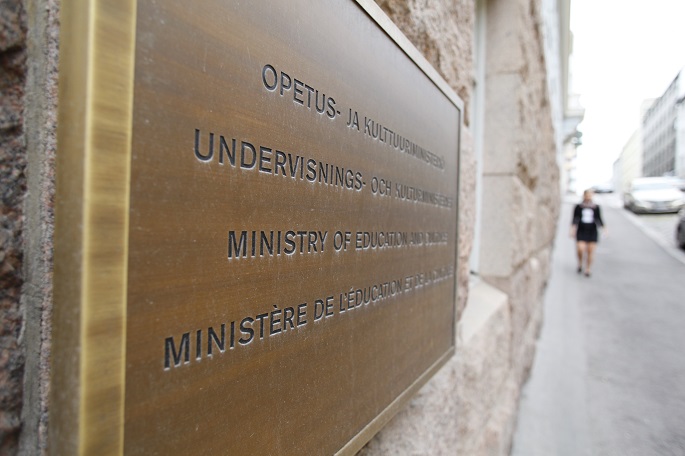New law on vocational edn reinforces professional skills
Published : 11 Aug 2017, 02:00
Updated : 11 Aug 2017, 08:37
The government on Thursday forwarded to the President for approval the new Act on Vocational Education and Training which will enter into force from the beginning of next year, said an official press release.
The new law will reinforce professional skills in the country. The most important task of vocational education and training will be to produce individual skills that meet the needs of students and working life.
The individual skill needs will be met flexibly through vocational qualifications and their parts and through preparatory education and training not leading to qualification.
It will be possible to study in educational institutions, at workplaces and in digital learning environments.
A new learning agreement model will facilitate studies at workplaces. Attractiveness of the existing apprenticeship training will also be improved. Skills acquired with the learning and apprenticeship agreements will be demonstrated in practical work situations.
Students’ performance will be assessed together by teachers and experts in working life. It will be possible to apply for and start training flexibly according to needs. Increasing the opportunities for working life-oriented studies aims to respond to the changes in working life.
A new funding model will be introduced to improve the effectiveness and quality of education and training. The funding model will encourage education providers to adopt measures to reduce discontinuation of studies and recognise previously acquired skills more efficiently.
Education providers will get more freedom to organise education and training with the introduction of the new organisation licenses. The funding reform aims to ensure the implementation of the educational guarantee and encourage education providers to adopt measures to reduce discontinuation of studies.
The act approved by Parliament contains four resolutions. Parliament requires that the Government submit to Parliament proposals for legislative amendments to enable equal access to apprenticeship training in all sectors, regardless of the employer's obligation to offer work.
According to Parliament, the Ministry of Education and Culture must monitor the impacts of the new funding model on the organisation of education and training and submit a report to the Education and Culture Committee annually at the beginning of the autumn session.
At the same time the sufficiency of the core funding will also be assessed. The Ministry must also prepare a report on the consistency of educational paths and opportunities to receive education and training for students who need more demanding support.
Parliament further requires that the Ministry of Education and Culture supports, monitors and assesses the implementation of the reform, including its impacts on regional and linguistic access to education and training, discontinuation of studies and implementation of the educational guarantee.
The Ministry must also monitor whether the numbers of new learning and apprenticeship agreements increase as planned. If any amendment needs arise, the Government must submit the amendment proposals to Parliament.


